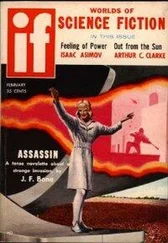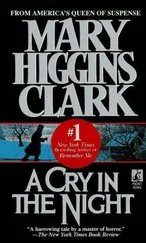Charles Clark - Out of the Hurly-Burly - or, Life in an Odd Corner
Здесь есть возможность читать онлайн «Charles Clark - Out of the Hurly-Burly - or, Life in an Odd Corner» — ознакомительный отрывок электронной книги совершенно бесплатно, а после прочтения отрывка купить полную версию. В некоторых случаях можно слушать аудио, скачать через торрент в формате fb2 и присутствует краткое содержание. ISBN: , Жанр: foreign_prose, foreign_humor, на английском языке. Описание произведения, (предисловие) а так же отзывы посетителей доступны на портале библиотеки ЛибКат.
- Название:Out of the Hurly-Burly: or, Life in an Odd Corner
- Автор:
- Жанр:
- Год:неизвестен
- ISBN:http://www.gutenberg.org/ebooks/42190
- Рейтинг книги:5 / 5. Голосов: 1
-
Избранное:Добавить в избранное
- Отзывы:
-
Ваша оценка:
- 100
- 1
- 2
- 3
- 4
- 5
Out of the Hurly-Burly: or, Life in an Odd Corner: краткое содержание, описание и аннотация
Предлагаем к чтению аннотацию, описание, краткое содержание или предисловие (зависит от того, что написал сам автор книги «Out of the Hurly-Burly: or, Life in an Odd Corner»). Если вы не нашли необходимую информацию о книге — напишите в комментариях, мы постараемся отыскать её.
Out of the Hurly-Burly: or, Life in an Odd Corner — читать онлайн ознакомительный отрывок
Ниже представлен текст книги, разбитый по страницам. Система сохранения места последней прочитанной страницы, позволяет с удобством читать онлайн бесплатно книгу «Out of the Hurly-Burly: or, Life in an Odd Corner», без необходимости каждый раз заново искать на чём Вы остановились. Поставьте закладку, и сможете в любой момент перейти на страницу, на которой закончили чтение.
Интервал:
Закладка:
We wish for quietness, and in New Castle it can be obtained, I think, in a particularly concentrated form. When Swede and Dutchman and Englishman had done contending for possession of the place, there was peace until the Revolution came, and with it ships of war and privateers, and such hurrying of troops and supplies across from New Castle to Frenchtown, from the Delaware to the Chesapeake, as kept the old town in a stir. There was then an interval of repose until the second war with England, when these busy scenes were re-enacted. Later in the century a mighty stir was made by the construction of a railroad, one of the earliest in the country, to Chesapeake Bay; then, as the excitement died away, the old town gradually went to sleep, and for nearly forty years it slumbered so soundly that there seemed to be a chance that it would never wake again. But time achieves wonderful things, and perhaps the day will come when the vicinity of the old town to the bay, the depth of water at its shores and the facilities offered for manufacturing and easy transportation, may make the village a great industrial centre, with hundreds of mills and multitudes of working-people. But as we join ourselves to the community there is no promise of such an awakening. We have still the profound repose and the absence of change that make the place so dear to those who have known it in their childhood. There are the paved streets where the grass grows thickly; the ancient wharves protruding into the stream, deserted but by the anglers and the naked and wicked little boys who go in to swim; the tumbling stone ice-piers, a little way out in the river; the old court-house, whose steeple is the point upon which moves the twelve-mile radial line whose northern end describes the semi-circular boundary of Delaware; the rickety town-hall, the ancient churches and the grim old houses with moss-covered roofs, the Battery, with its drooping willows and its glorious vista of river and shore beyond, and the dense masses of foliage, shutting out the sky here and there as one passes along the streets.
Into such a house as I have described, not far from the river, and with our neighbors at a little more than arm's length, I have come with wife and family, with household gods and domestic paraphernalia generally, to begin the life which will supply the material wherewith to construct the ensuing pages. It may perhaps turn out that the better part of that existence will not be told, but perchance it may be that the events related will be those which will possess for the reader greatest interest and amusement.
CHAPTER II
A step-ladder is an almost indispensable article to persons who are moving into a new house. Not only do the domestics find it extremely convenient when they undertake to wash the windows, to remove the dust from the door and window-frames, and to perform sundry other household duties, but the lord of the castle will require it when he hangs his pictures, when he fixes the curtains and when he yields to his wife's entreaty for a hanging shelf or two in the cellar. I would, however, warn my fellow-countrymen against the contrivance which is offered to them under the name of the "Patent Combination Step-ladder." I purchased one in the city just before we moved, because the dealer showed me how, by the simple operation of a set of springs, the ladder could be transformed into an ironing-table, and from that into a comfortable settee for the kitchen, and finally back again into a step-ladder, just as the owner desired. It seemed like getting the full worth of the money expended to obtain a trio of such useful articles for a single price, and the temptation to purchase was simply irresistible. But the knowledge gained by a practical experience of the operation of the machine enables me to affirm that there is no genuine economical advantage in the use of this ingenious article.
Upon the day of its arrival, the servant-girl mounted the ladder for the purpose of removing the globes from the chandelier in the parlor, and while she was engaged in the work the weight of her body unexpectedly put the springs in motion, and the machine was suddenly converted into an ironing-table, while the maid-servant was prostrated upon the floor with a sprained ankle and amid the fragments of two shattered globes.
Then we decided that the apparatus should be used exclusively as an ironing-table, and to this purpose it would probably have been devoted permanently if it had suited. On the following Tuesday, however, while half a dozen shirts were lying upon it ready to be ironed, some one knocked against it accidentally. It gave two or three ominous preliminary jerks, ground two shirts into rags, hurled the flat-iron out into the yard, and after a few convulsive movements of the springs, settled into repose in the shape of a step-ladder.
It became evident then that it could be used with greatest safety as a settee, and it was placed in the kitchen in that shape. For a few days it gave much satisfaction. But one night when the servant had company the bench was perhaps overloaded, for it had another and most alarming paroxysm; there was a trembling of the legs, a violent agitation of the back, then a tremendous jump, and one of the visitors was hurled against the range, while the machine turned several somersaults, jammed itself halfway through the window-sash, and appeared once more in the similitude of an ironing-table.
It has now attained to such a degree of sensitiveness that it goes through the entire drill promptly and with celerity if any one comes near it or coughs or sneezes close at hand. We have it stored away in the garret, and sometimes in the middle of the night a rat will jar it, or a current of air will pass through the room, and we can hear it dancing over the floor and getting into service as a ladder, a bench and a table fifteen or twenty times in quick succession.
The machine will be disposed of for a small fraction of the original cost. It might be a valuable addition to the collection of some good museum. I am convinced that it will shine with greater lustre as a curiosity than as a household utensil.
Perhaps we may attribute to the fantastic capers of this step-ladder the dissatisfaction expressed by the servant who came with us from the city; at any rate, she gave us notice at the end of the first week that she would not remain. She is the ninth that we have had within four months. Mrs. Adeler said she was not sorry the woman intended to go, for she was absolutely good for nothing; but I think a poor servant is better than none at all. Life is gloomy enough without the misery which comes from rising before daylight to fumble among the fires, and without living upon short rations because one's wife has no time to attend to the cooking.
I am not sure, at any rate, that it would be a very great advantage to have thoroughly good servants, for then women would be deprived of the very evident pleasure they now take in discussing the shortcomings of their domestics. The practice is so common that there must be supreme consolation in the sympathy and in the relief to the overcharged feelings that are permitted by such communion.
Place two women together under any circumstances, and it makes no difference where the conversation starts from, for it will be perfectly certain to work around to the hired-girl question before many minutes have elapsed. I have seen an elderly housekeeper, with experience in conducting the talk in the desired direction, break in upon a discussion of Pythagoras and the doctrine of the transmigration of souls, and switch off the entire debate with such expedition that a careless listener would for some moments have an indistinct impression that the conversation referred to the inefficiency of Pythagoras as a washer and ironer, and to the tendency of that heathen philosopher to take two Thursdays out every week.
Читать дальшеИнтервал:
Закладка:
Похожие книги на «Out of the Hurly-Burly: or, Life in an Odd Corner»
Представляем Вашему вниманию похожие книги на «Out of the Hurly-Burly: or, Life in an Odd Corner» списком для выбора. Мы отобрали схожую по названию и смыслу литературу в надежде предоставить читателям больше вариантов отыскать новые, интересные, ещё непрочитанные произведения.
Обсуждение, отзывы о книге «Out of the Hurly-Burly: or, Life in an Odd Corner» и просто собственные мнения читателей. Оставьте ваши комментарии, напишите, что Вы думаете о произведении, его смысле или главных героях. Укажите что конкретно понравилось, а что нет, и почему Вы так считаете.












